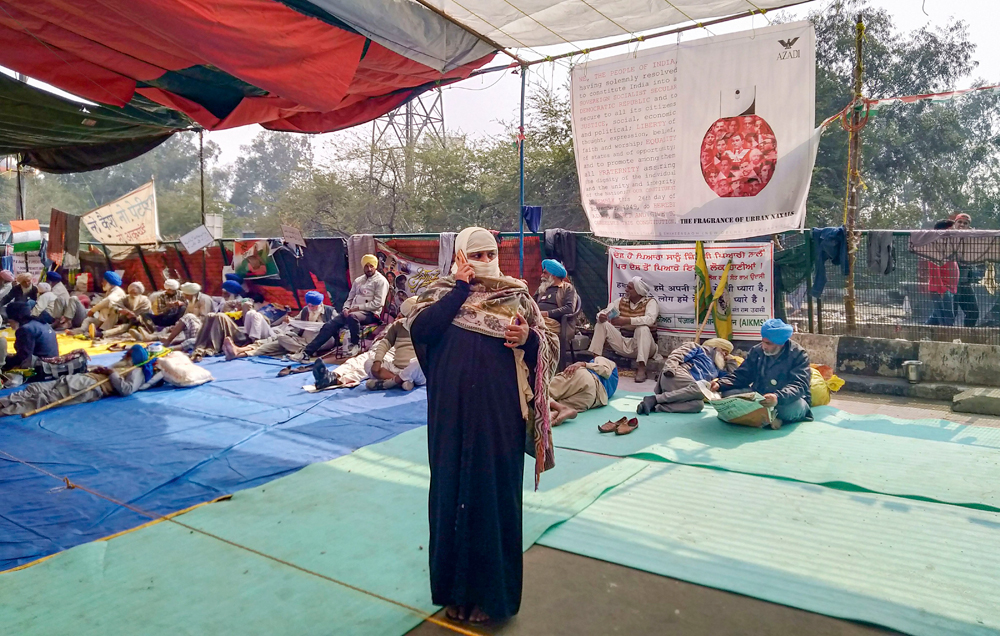The Supreme Court on Monday said protesters cannot “inconvenience” people with indefinite demonstrations at public places but refused to pass any interim order to evict those who have been on a sit-in at the capital’s Shaheen Bagh for nearly two months now.
Justices Sanjay Kishan Kaul and K.M. Joseph, however, issued notices asking the Centre to respond to two petitions to clear out the anti-citizenship-act protesters from the neighbourhood.
The bench fixed the next hearing for February 17.
Justice Kaul, who was heading the bench, said in an oral observation: “There cannot be any indefinite protests in common public areas. If people start protesting everywhere, what will happen?”
The court was dealing with two separate petitions, one filed by an advocate, Amit Sahni, and the other by a person called Nand Kishore Garg.
Both had complained that it was getting increasingly difficult for common citizens as the protests were causing continuous traffic snarls in several parts of the capital.
The women of Shaheen Bagh began their sit-in against the Citizenship (Amendment) Act on December 15 — the day police had gone on the rampage at the Jamia Millia Islamia university nearby in pursuit of alleged arsonists.
The court said people were “entitled” to protest but only at designated sites. “You cannot block the public roads. There cannot be indefinite period of protest in such an area. If you want to protest, it has to be in an area identified for protest,” the bench said.
“You cannot create inconvenience for the people,” the bench added.
But it refused to pass any interim directive to evict the protesters, saying it would like to hear the Centre’s view.
In another case, a three-judge bench of the top court issued notices to the Centre and the Delhi government asking them to respond to a letter on the death of a four-month-old who had accompanied his parents to the Shaheen Bagh demonstration.
Chief Justice S.A. Bobde and Justices Bhushan Gavai and Surya Kant took cognisance of the letter written to the court by a 12-year-old who said the infant’s death amounted to a violation of a citizen’s fundamental right to life and liberty under Article 21 of the Constitution.
Mohammed Jahaan died last month after catching a severe cold and developing lung congestion after he returned home with his parents from the protest site.
The bench told some women advocates who sought to intervene in the matter and complain about large-scale violations at Shaheen Bagh that it would not entertain their plea.
When one of the advocates tried to say that the protesters were being branded “Pakistani” agents, terrorists and traitors, Justice Bobde cut her short, saying the court was concerned only with the infant’s death in this matter.
“We don’t want people to use this type of language in the court. You can say all these things outside. We are not on CAA, NRC, NPR or rude behaviour outside…,” he said.
(“Don’t make explosive submissions. Please do not make such statements. We do not want people to use this platform to further create problems,” PTI quoted the bench as saying.)
“We have the greatest respect for motherhood and the highest concern for children. But we would like to hear only legal points. We don’t want anybody to make unnecessary arguments or raise irrelevant submissions…,” the Chief Justice added.











